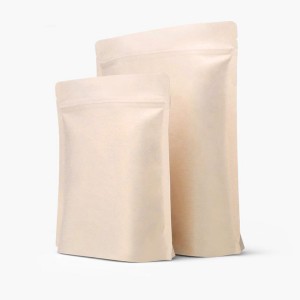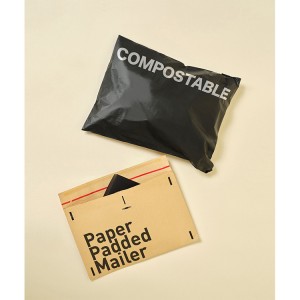
Compostable Plastic Zipper Bag Made By PLA and PBAT
Degradable or 'oxo-degradable' plastic bags
Degradable items don't have living organisms as a crucial part of the breakdown process. Degradable bags cannot be classed as biodegradable or compostable. Instead, chemical additives used in the plastic allow the bag to break down quicker than a standard plastic bag usually would.
Essentially bags touted as 'degradable' are definitely not beneficial, and can even be worse for the environment! Degradable bags that disintegrate just become tinier and tinier pieces of microplastic quicker, and still pose serious threats to marine life. Microplastics enter the food chain lower down, getting eaten by smaller species and then continuing to make their way up the food chain as these smaller species are consumed.
Professor Tony Underwood from the University of Sydney described degradable plastic bags as "not a solution to anything much, unless we are quite happy to shift it all into particle-sized plastics rather than plastic bag-sized plastic."
"NOT A SOLUTION TO ANYTHING MUCH, UNLESS WE ARE QUITE HAPPY TO SHIFT IT ALL INTO PARTICLE-SIZED PLASTICS RATHER THAN PLASTIC BAG-SIZED PLASTIC."
- PROFESSOR TONY UNDERWOOD ON DEGRADABLE BAGS
Compostable plastic bags
The word 'compostable' is incredibly misleading for the average consumer. You'd think a bag labeled 'compostable' would mean you could throw it in your backyard compost alongside your fruit and vegie scraps, right? Wrong. Compostable bags biodegrade, but only under certain conditions.
Compostable bags need to be composted in a specific composting facility, of which there are very few of in Australia. Compostable bags are generally made from plant material that return to base organic components when processed by these facilities, but the problem lies in the fact there are thus far only 150 of these facilities Australia wide.
Can I recycle plastic bags?
Plastic bags, biodegradable, degradable and compostable bags cannot be placed in your standard recycling bin at home. They can severely interfere with the recycling process if they are.
However, your local supermarket may offer plastic bag recycling. Some supermarkets can also recycle 'green bags' that are torn or no longer used. Find your nearest location here.
Which is the best bag to use?
BYO bag is the best option. The labeling on plastic bags can be confusing and misleading, so bringing your own bag along will avoid disposing of a plastic bag incorrectly.
Invest in a sturdy canvas bag, or a small cotton bag that you can throw in your handbag and use when you get some last minute groceries.
We need to transition from relying on items of convenience, and instead focus on small actions that show care for the world we live in. Ditching single-use plastic bags of all kinds is the first step.














